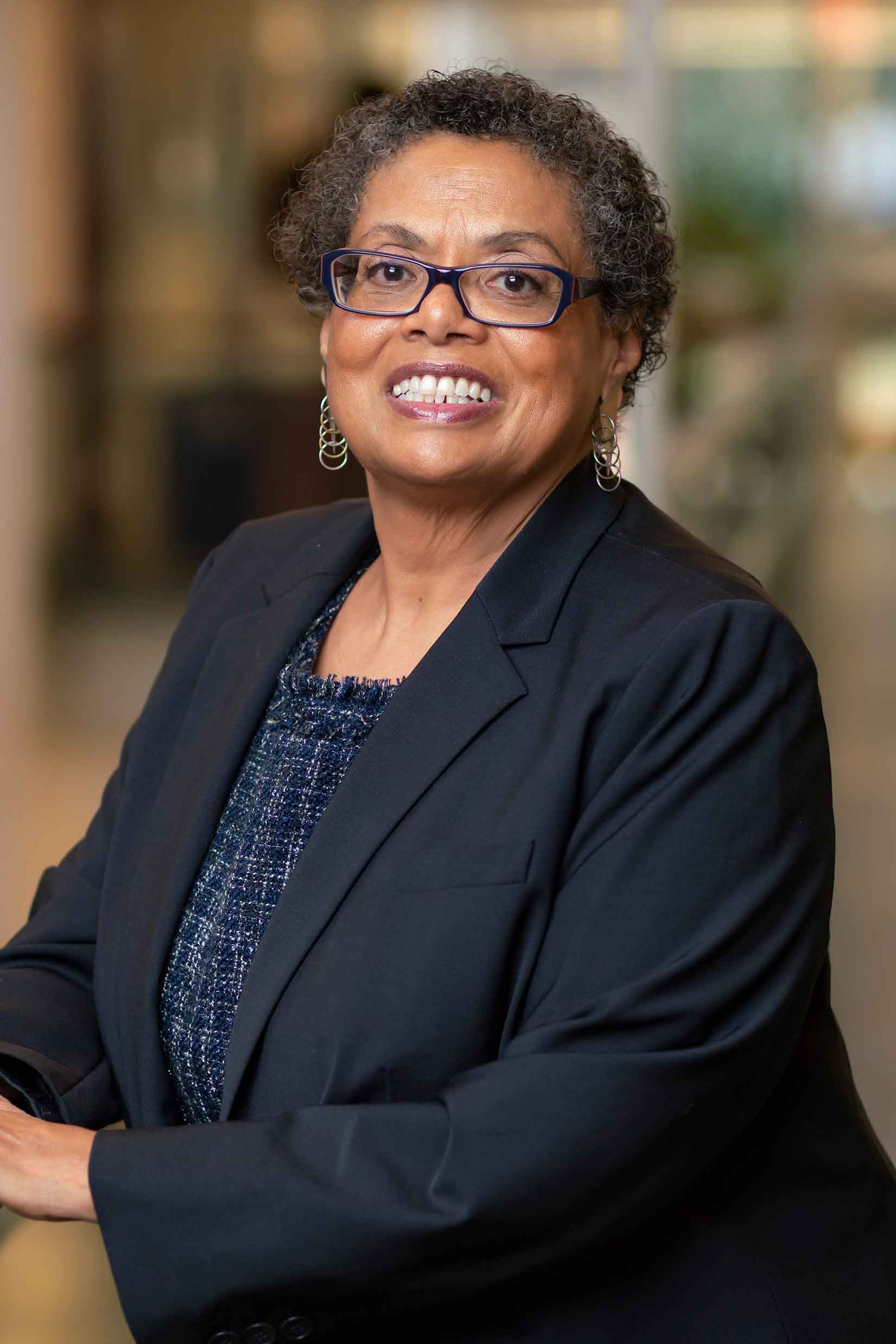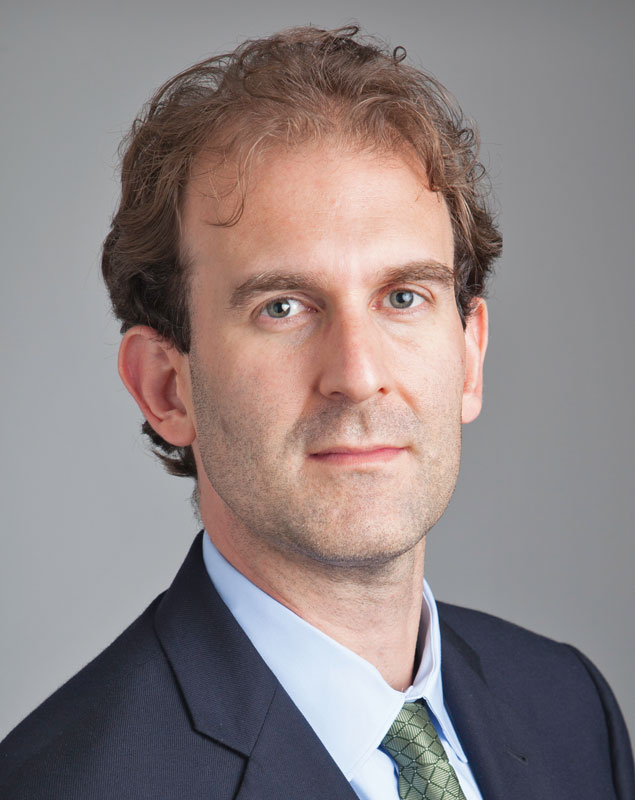AAVC SpotlightBeverly Moran ’76 and Ezekiel Edwards ’95
AAVC SpotlightBeverly Moran ’76 and Ezekiel Edwards ’95
This year, the alumnae/i association, AAVC, turns 150. Throughout 2021, the College will be celebrating this anniversary by highlighting a few of Vassar’s most notable alumnae/i in architecture, arts, business, education, entertainment, healthcare, humanitarian efforts, law, social justice, and technology. This month, we focus on two alumnae/i attorneys who are working to create a more just society.
Beverly Moran ’76

Occupation: Legal scholar and Professor Emerita of Law, Vanderbilt University
Accomplishments: During a four-decade legal career that has taken her around the world, Beverly Moran has focused her teaching, research, and writing on the U.S. federal income tax code and how it perpetuates inequalities in American society. In her groundbreaking 1996 Wisconsin Law Review article, “A Black Critique of the Internal Revenue Code,” she and a colleague empirically demonstrated that Black people pay more federal income tax than White people at the same income levels—a disparity that persists to this day, along with other inequities. “If you talk to anybody who feels themselves to be in any way knowledgeable about federal income taxation, one thing they will say and believe is that rich people are taxed more than poor people under the federal income tax; that it is progressive. And we have never had a progressive tax system,” Moran says. “One of the reasons that it’s so important to lie about that is because it’s so in conflict with our stated values.”
Graduating from the University of Pennsylvania Law School in 1981, Moran did not start out with an interest in tax law. However, she found it to be a niche in which she could excel as she navigated her way into an unwelcoming profession. “It was just a very bad time to be a female lawyer—people were just ugly,” she recalls. “One of the things about people who go to law school is that they’re afraid of numbers, and I was never afraid of numbers. It was an area where I was a little more protected from sexism and racism; it was really just that simple.” Still, this area of the law become more fascinating to her the more she delved into it. “You know people’s values, and society’s values, by who they charge and who they set free,” she says.
Before retiring at the end of 2019, Moran directed Vanderbilt University’s Master of Laws (LLM degree) and Social Justice programs, and was the first director of the Vanderbilt University Center for the Americas. She also spent a year at the Massachusetts Institute of Technology as an American Council on Education Fellow. She has received a Fulbright award as well as grants from the Annie E. Casey Foundation, the Rockefeller Foundation, and the Ford Foundation. She continues to teach and write as a professor emerita.
Looking Back: Moran attended a public high school for academically gifted students in New York City, but wasn’t interested in college simply for the sake of it. “I came from the housing projects at the base of the Triborough Bridge,” she says. “All I knew was that I needed a job. So I kept going to school in the hopes that sooner or later, I would be able to be employed.” Her mother became acquainted with a couple who were “dedicated to getting Black kids into college,” and they pointed her towards Vassar. Thanks to “very generous” financial aid from the College, Moran soon found herself in a very different environment. “I liked sitting on the golf course,” she recalls. “It was very green. I still remember when the food was served in the dormitories, and that was very lovely.” Moran developed an independent major in “varying uses of quantitative techniques in the social sciences.” But her fondest memories are reserved for Lawrence Mamiya, Professor of Religion and Africana Studies, who helped her keep going when a long illness almost derailed her college career. “Larry Mamiya became my advisor and he really saved my life,” she says. “He had faith in me.”
Looking Forward: Moran plans to continue teaching through BARBRI, an online legal education company, and writing opinion pieces. In her latest, for the website The Conversation, she details how the IRS’s problematic relationship with commercial tax-preparation companies puts American taxpayers at a disadvantage. She is also advocating for the American Bar Association to continue to allow online learning—which she says it only allowed grudgingly during the pandemic. “ABA just made it so difficult to do online courses,” she says. “There are lots of working- and middle-class people who have serious legal issues but they can’t afford to pay a lawyer to deal with them. The cost of legal education is so high, lawyers can’t afford to charge what working- and middle- class people can pay. But if people could get their degrees online, that should cut cost by 75 percent. I hope they let that happen.”
Ezekiel Edwards ’95

Occupation: Director, ACLU Criminal Law Reform Project
Accomplishments: Since graduating from the University of Pennsylvania Law School in 2002, Ezekiel Edwards has been working to promote a more humane criminal justice system. He began his career as a public defender at The Bronx Defenders, then served as a staff attorney for the renowned Innocence Project, which helps exonerate people wrongly convicted of crimes. Currently, Edwards leads the Criminal Law Reform Project (CLRP) of the American Civil Liberties Union. The project’s overall goal, he says, is to use litigation, advocacy, and public education “to drastically reduce the number of people incarcerated in this country (more than anywhere in the world), and to challenge the ways in which criminal laws are targeted against communities of color.” In the 2013 ACLU report, The War on Marijuana in Black and White, Edwards and his colleagues detailed a “staggering racial bias” in the enforcement of marijuana laws at a cost of $3.6 billion per year. In a sequel report in 2020, A Tale of Two Countries, the ACLU found that police made more marijuana arrests than for all violent crimes combined, and that racial disparities in marijuana possession arrests persist in every state.
Under Edwards’ leadership, CLRP has been a national leader in efforts to: significantly reduce the number of people who are held in pre-trial detention, many of whom are in jail simply because they can’t afford to post bond; eradicate police violence and racism; reduce the power and impunity of prosecutors; challenge under-funding of public defense; and promote justice for youth in the criminal legal system. Through litigation that took a decade, for example, Edwards and his colleagues helped end unconstitutional parole practices for juveniles in Michigan, which previously had included mandatory life without parole for certain offenses.
In 2020, when COVID-19 began ravaging jails and prisons, CLRP and the ACLU mounted a massive litigation effort to protect incarcerated people by increasing release where possible and improving conditions. They brought over a dozen class action lawsuits targeting some of the largest jails and prison systems around the country—cases which are mostly still pending. Although this litigation has had limited success, Edwards says he is very proud of the effort because “it is a time when members of my team worked extremely hard under suboptimal circumstances to respond to a national public health emergency on behalf of people about whom the system could care less.”
Looking Back: Edwards, a history major from New York City, says he went to college with a deep interest in social and racial justice but no clear career goals. “Vassar was pivotal,” he says. “It helped me articulate and understand the role of racism and classism in domestic and international policy throughout American history, and also first sparked my curiosity in the law.” He was fascinated by legal classes taught by Professor Wilfrid Rumble and history classes taught by James Merrell and Robert Brigham. “Overall those classes didn’t benefit my GPA, but I was really intellectually stimulated by those teachers and subjects,” he recalls. “After taking Professor Rumble’s constitutional law class, I remember thinking, ‘Wow, it would be really exciting to be a constitutional lawyer.’” A member of the varsity basketball team, Edwards fondly remembers practice in Kenyon Hall’s “snug” gym (“I felt like I was in Indiana in 1940”) and nights dancing at the Mug. But Thompson Memorial Library was his favorite place of all. “I loved going to that library,” he says. “Studying and learning there, and doing research underneath the stained-glass windows at those long tables—I really felt so fortunate and inspired.”
Looking Forward: Edwards is continuing to push for transformational changes to the criminal justice system, noting that “ending the national disaster of mass incarceration and the public health crisis of police violence are the two things that I feel are most urgent in our work.” He hopes that events of the past year have led to a new awareness of and determination for a different society. “In order to make really profound change at the local and national level,” he says, “you need people to understand if not experience the crises, and believe that it is the shared interest of our communities to demand and create alternative solutions to the current system which is anchored in punishment, violence, and humiliation.” To that end, his arm of the ACLU will continue to educate and litigate around criminal and racial justice issues. But Edwards believes change has been much too slow and that new strategies and innovations will be needed. “The thinking around a new direction for this country has to be much more radical,” he says. “It has to be led, as it increasingly is, by people in communities who are directly impacted. Nonprofits and lawyers need to figure out how to help these movements achieve these goals. We have to divest emotionally, ideologically, and financially from punishment and policing as our primary public safety strategies. Until we do, most reforms will simply be less of the same as opposed to rebuilding the paradigm altogether.”